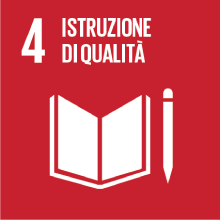GESTIONE FINANZIARIA
- Anno accademico
- 2024/2025 Programmi anni precedenti
- Titolo corso in inglese
- FINANCIAL MANAGEMENT
- Codice insegnamento
- HM0101 (AF:526144 AR:296299)
- Lingua di insegnamento
- Inglese
- Modalità
- In presenza
- Crediti formativi universitari
- 6
- Livello laurea
- Advanced Course
- Settore scientifico disciplinare
- SECS-P/11
- Periodo
- 3° Periodo
- Anno corso
- 1
- Sede
- VENEZIA
- Spazio Moodle
- Link allo spazio del corso
Inquadramento dell'insegnamento nel percorso del corso di studio
Part A - Introductory classes
Module 1 - Foundations of financial management
It provides fundamental notions of finance: risk premium, risk adjusted returns, capital structure of the firms.
Part B - Thematic research-oriented modules
These modules introduce specific themes whose interest lies either on the way issues are afforded (for example behavioral finance) or on their current relevance (for example, sustainable finance).
The modules will be the following:
• behavioral finance;
• entrepreneurial finance;
• fintech and funding;
• sustainable finance.
Risultati di apprendimento attesi
Knowledge and understanding.
Students will know the foundations in new and relevant topics in financial management
Application of knowledge and understanding.
Students will be able to structure and develop empirical research projects.
Judgment abilities.
Students will be able to judge the novelty and further development potential of applied research papers.
Prerequisiti
Contenuti
Fundamental notions of finance: risk premium, risk adjusted returns, capital structure of the firms.
Module 2 - Behavioral finance
Behavioral finance is a relatively new field of research which has changed the way of approaching to financial decision making. It has introduced, besides the prescriptive approach showing what rational people should do, a descriptive approach depicting how people actually behave. The comparison between the approaches results in systematic differences of the actual behavior from the rational one. The relevance of behavioral finance is widely recognized and it offers new insights in empirical finance.
Module 3 - Entrepreneurial finance
Entrepreneurial firms are recognized as important drivers of innovation and employment. Their funding, even though may resemble the one of mature firms, shows specific challenges that calls for a separate research area. The challenges are empirically relevant because matching funding needs with the right funding source has a great impact on the success of the firms.
Module 4 - Fintech and funding
Fintech refers to the interactions between new technologies and financial services, both investing and funding. The module deals with the structuring of new funding sources and how they affect funding needs and trajectory of firms.
Module 5 - Sustainable Finance
Sustainable finance studies how finance (investing and funding) interplays not only with economic and financial issues, but also with social and environmental ones. Finance has often been accused to move companies towards a short term profit orientation: sustainable finance corrects this bias introducing a long term orientation where economic objectives are set together with the social and environmental ones.
Testi di riferimento
Copeland T.E., Weston J.F., Shastri K., 2004, Financial Theory and Corporate Policy, The Addison-Wesley Series in Finance, 4th Edition: chapters 3, 5, 6, 10, 11, 13, 15.
Part B
References will be provided at the beginning of the course.
Modalità di verifica dell'apprendimento
Students have to write a short essay (< 2000 words, references excluded) on the chosen paper/topic, following this structure:
- Introduction and brief summary;
- Literature review (already in the article, but also beyond it);
- Unsolved issues, open problems, extensions, food for thought.
The essay is delivered after the end of the course within a deadline agreed on with the professor.
Master’s students
Students will deliver a written draft of a research project (< 2500 words, references excluded). The draft comprises:
- A short introduction where student explains the project and the research idea;
- A literature review on the topic;
- A concise and preliminary design of the empirical research which will be carried out.
The draft is delivered after the end of the course within a deadline agreed on with the professor.
Grading Scale:
A. Scores in the 18-22 range will be awarded for:
Sufficient knowledge and applied understanding of the course material.
Limited ability to apply knowledge and make independent judgments.
Sufficient communication skills, especially in relation to the use of specific language pertaining to markets and financial institutions.
B. Scores in the 23-26 range will be awarded for:
Fair knowledge and applied understanding of the course material.
Fair ability to apply knowledge and make independent judgments.
Fair communication skills, especially in relation to the use of specific language pertaining to markets and financial institutions.
C. Scores in the 27-30 range will be awarded for:
Good or excellent knowledge and applied understanding of the course material.
Good or excellent ability to apply knowledge and make independent judgments.
Fully appropriate communication skills, especially in relation to the use of specific language pertaining to markets and financial institutions.
D. Honors will be awarded for:
Excellent knowledge and applied understanding of the course material, judgment skills, and communication skills.
Modalità di esame
Metodi didattici
More specifically, each module will be composed by:
- frontal classes taught by the professor introducing the topic, highlighting its main features and the most relevant research questions: why and how they are studied and what we know about them;
- classes where the professor guides the discussion about specific research papers.
Altre informazioni
Accommodation and support services for students with disabilities and students with specific learning impairments
Ca’ Foscari abides by Italian Law (Law 17/1999; Law 170/2010) regarding support services and accommodation available to students with disabilities. This includes students with
mobility, visual, hearing and other disabilities (Law 17/1999), and specific learning impairments (Law 170/2010). If you have a disability or impairment that requires accommodations (i.e., alternate testing, readers, note takers or interpreters) please contact the Disability and Accessibility Offices in Student Services: disabilita@unive.it.
Obiettivi Agenda 2030 per lo sviluppo sostenibile
Questo insegnamento tratta argomenti connessi alla macroarea "Capitale umano, salute, educazione" e concorre alla realizzazione dei relativi obiettivi ONU dell'Agenda 2030 per lo Sviluppo Sostenibile


